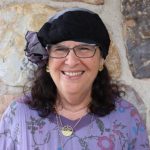
Not everyone lives in New York, LA, Chicago, Boston, Philadelphia, or other cities with large Jewish communities and numerous organizations supporting Jewish life. For LGBTQ+ Jews and those who love them, living in places with smaller Jewish communities can be extra challenging if the local Jewish community is not as welcoming or as religious as they need.
Several years ago, I heard from a gay couple looking to find community in a region with very few Jews at all, much less any religious community. I connected them to the local Chabad, which was LGBTQ+ accepting and not too far away, and they were happy to help the couple gather Jews in their home. They started small, with Shabbos dinners, and began inviting people in the area to join them. Over time, these dinners grew and a community was born.
Every day, there are more and more independent and DIY communities being created within the observant community. One meets in a backyard, another in a living room, and yet another in a repurposed garage. While there are many reasons for their creation, one advantage is that these fledgling communities aren’t tied to existing bylaws, boards, or membership, and can often include LGBTQ+ Jews and their families more easily. In fact, Eshel members and other LGBTQ+ people are often at the forefront of creating these communities where there were none before.
Simcha Pollard, one member of our Eshel family who has built his own community in Laramie, Wyoming, explains his journey as follows:
I was active in the Chabad community in Long Beach, California from 2010 to 2018. I knew I was gay my entire life. I came out to the community in 2018 after realizing I didn’t want to be closeted anymore. I moved to Laramie, Wyoming with a partner and became involved in three communities – my 12-step groups, Jewish community, and the LGBTQ+ community. In each community I practiced what is termed “singleness of purpose”. So, in the Jewish community, I showed up as a Jew, not LGBTQ+ or a member of a 12-step group, even though everyone in each group knew I was open and transparent in all three of these spaces. I decided that rather than try to form anything officially, I continued to be engaged in Mitzvot and Yom Tov celebrations and I would invite all the Jews I knew and could find with the help of the loosely formed Jewish community group and the university. This is how I started. A Chabad rabbi showed me how easy it was to do Purim in 2010, and I continued to observe mitzvot, invite others to join me, and was on my way.
I began by inviting folks over on Shabbos afternoon about 90 minutes before it ended so I could do Havdalah with them and maybe some learning. For weeks no one came. Then a woman showed up. And she kept coming and then brought some others with her and then even more came and we learned Torah, Tanya, Tanach, Chassidus and then did Havdalah. My first Chanukah in Laramie came, and I gently put some pressure/guilt on the nearest Chabad Shaliach, who then gave us a very large menorah for a public candle lighting. The turnout for Chanukah was several hundred. As we continued to grow I added sedarim, Shavous meals, Purim megillah readings, Purim seuda, shlach manos, shofar blowing, a Lag B’omer BBQ and bonfire, etc. It just continued to grow and more and more people showed up. I HAD COMMUNITY!
As you might imagine, I did attract many LGBTQ+ Jews and Jews in 12- step programs here in Laramie. When both saw you could be observant and gay, observant and sober, it changed their view on Judaism.
In August 2022 my partner with whom I moved to Laramie left. All three communities were concerned about me leaving Laramie as a result of being alone. Their sense of relief when I announced that I was staying was tremendous. I realized that Hashem wants me here and here I am. I continue to be an avid supporter and participant with Chabad of Laramie. I belong in this community in every way.
We have all been so inspired by Simcha’s work and he has agreed to be consulted for developing such a vibrant Jewish life in other places. He is already working with another Eshel member to build a frum and welcoming community in rural Tennessee. This, too, is the work of the Welcoming Shuls Project. Sometimes, its identifying welcoming communities or helping existing communities to become more LGBTQ+ inclusive. Other times, it requires creating communities where there were none. We are excited to keep working with him and others like him to build inclusive Orthodox communities around the country and around the world.
If you’re looking for guidance in building the frum community of your dreams anywhere, let us know.

